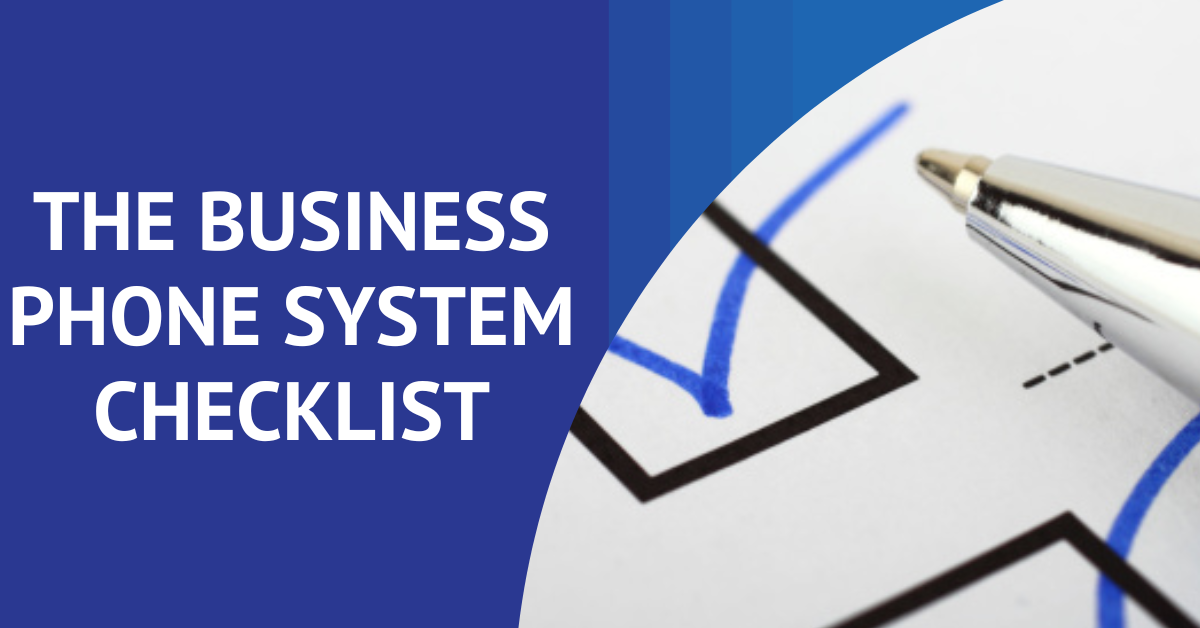How Much Should a Hosted VoIP Phone System Cost?

Technology is in a state of constant change, making it very easy to get left in the dust of today’s business environment. Hosted technologies and cloud-based services are the new standard for managing technology and phone systems are no exception. As businesses transition to cloud computing for their phone services, one of the primary questions from decision-makers is, “How much should a hosted VoIP phone system cost?”
Navigating the complexities of phone systems, like Hosted Voice over Internet Protocol (VoIP), can be daunting for decision-makers at all levels, from IT specialists to C-level executives. And let’s face it, people are busy and frankly don’t care to spend time learning the granular details of a phone system. However, something that is not difficult, everyone has done at least once, and is easily understood, is car buying. Buying a car is easy because the sales process has been clarified to speak to people’s needs and requirements, not their specific knowledge of an automobile. Think about it. When you buy a car does the salesperson begin describing the numerous benefits of direct injection and variable cam timing? The answer is, No. They ask need-based questions, moving from general to specific understanding of the buyer and making feature/model recommendations based on those needs.
Like buying a car, choosing a phone system should be straightforward, focusing on needs rather than technical details. It’s about finding what fits your business – whether that’s a basic setup or a system with all the advanced features. This approach ensures that decision-makers of all backgrounds can confidently select a phone system that aligns with their business needs, without feeling overwhelmed by the complexity. Let’s bridge the gap to phone systems.
What is a Hosted Phone system?
A hosted phone system is one where the software and hardware required to make a phone system work is hosted outside of your office in the service provider’s internet cloud. This includes the call control and voicemail system. This setup minimizes the on-site hardware requirements to an IP (Internet Protocol) Phone, Internet Router and PoE (Power over Ethernet) switch, allowing phone access from any internet-connected location. You can have phones most anywhere you have internet access because the service is accessible over the internet.
Key Questions for Decision Makers
Clearly, nobody should walk into a car dealership asking, “What does a blue one with 4 tires cost?” It’s like asking, “What does a phone with dial tone cost?” To figure out a budget for Hosted VoIP, consider answering the following questions:
- How critical are phones to our business?
- What does our business need from our phones?
- How many users (multiple locations included) do I have that need a phone?
- Will having voicemail come to your email inbox create efficiency?
- How fast can the system scale up or down to meet the needs of the business?
- How many conference rooms do we have? Size? Do they need phones?
- Will video calling play a role now or in the future for the business?
- What type of functions do these users require? (e.g., a receptionist needs more features than a conference room phone)
- How many people will be/are on the phone at the same time?
- What is my call volume and how much is inbound vs. outbound calling?
- Will there be a need for call center and reporting of agent productivity?
- Is international calling business critical?
- What is my current internet connectivity/bandwidth?
- What is the age of my current network gear? Can it be reused?
How is Hosted VoIP Different from a Conventional Phone System?
Perhaps you are wondering about the questions regarding individual people. Hosted VoIP is vastly different from a conventional phone system in that it doesn’t use any phone lines. The phone calls are transformed into data and run over your business’ internet connection. Phone calls are now the same as up and downloading information from the internet, but the phone data gets immediate priority. This is to ensure perfect clarity and call continuity. Lastly, answering the bandwidth question is critical. If bandwidth is insufficient with web browsing it results in slow speeds. If it is insufficient with Hosted VoIP, it can result in dropped calls. By answering these questions without becoming a phone system aficionado, we can focus on a budgeting strategy.
Your Users and How They Differ
In any business, every employee has a different role, and their needs for a phone system vary. The cost of their phone service (or “phone license”) depends on how much they use it and what features they need. For example, someone in charge of a call center will need a lot of features and will have a higher cost. Other roles, like a call center worker, someone who travels a lot for work (“road warrior”), or a regular office worker, will have different needs and costs. The less complicated the phone needs are, the lower the cost. So, someone who just needs a basic phone, like for a break room, will have the lowest cost because they just need a simple phone for making calls.
Brass Tax: Basic Costs of a Hosted VoIP Phone System
- Users: the licensing on the user types does vary quite dramatically from a high-end of around $35.00 per month/user all the way down to $18.00 per month/user.
- Phone Options: Our range of phones, also referred to as ‘end-points,’ cater to diverse user needs. We offer a variety of models, from advanced desk phones with color video touchscreens to basic models without any screen. We also provide conference room phones designed for different sized spaces, including wireless options. The price for our desktop phones varies from $100 to $400, featuring video capabilities. For conference room phones, the prices range between $200 and $1,500, depending on their features and capabilities.
- Hardware: These are the techno-goodies that protect your security, translate what you’re saying into data, send it over the internet, and deliver it safe and sound at the intended destination. The typical solutions include an internet router that connects to the internet, handles the security, and manages quality of service at the location. The other component is the local area network switch connecting the phone and computers in your office. These switches include the ability to provide power to the phones and are referred to as “Power over Ethernet” or PoE switches. The overall cost of hardware is determined by the number of users on the phone system. This cost can be expected from $75-$500 per individual.
- Internet Connection: Back to the question concerning bandwidth and what is currently in place. Existing phone lines go away as the voice is turned into data traffic and now travels over the internet. We recommend Fiber Optic internet to all our hosted clients along with a less expensive backup service to ensure a reliable and survivable service. A mix of factors such as user demand, business requirements, availability, carrier choices, and geographic location most significantly influence the variability of internet prices here. However, most of our clients have 2, sometimes 3 circuits, with costs ranging from $500/mo. to $2,500/mo.
- Add-on Features: Calling features can range from $5-$15 per feature monthly (Call recording, call forwarding, SMS, auto attendants), software packages range from $20-$100 per package per month (AI support tools, analytics)
- Initial Setup Costs: Some providers may apply a one-time charge for account creation and system configuration depending on the size and scope.
Implementation Approaches: Making it Work.
When buying, receiving, and implementing a new product or service there are always different schools of thought that define the process. The three we most commonly run into are as follows:
- Fearless D.I.Y.: These are the individuals who feel they’ve gathered the facts about VoIP and can simply implement the system themselves. They also commonly act as “commodity shoppers,” looking for the best price because they believe using their knowledge and time is better than investing in a third-party resource. In this scenario, we provide the hardware, configure the software, and drop ship to a location where the individual who has taken the reins will perform their own installation, training, maintenance, and management.
- The Middleman: The middleman has some knowledge of VoIP but understands the benefit of a third-party resource. They know enough to understand what the system is capable of but what their limitations of understanding are. Here, we provide the hardware, installation, and training in this environment to help the customer ensure maximum efficiency from their employees and investment. The only thing we would not do is manage their internet and phone system connectivity.
- Turnkey: This is the decision maker who wants the most reliable best fit solution; we excel in delivering to this profile. From the beginning, we actively engage in architecting a solution to meet the clients’ current needs and future goals. We consider ourselves team members in this environment and build long-term personal business relationships. Aside from everything already described, this approach also includes current bill auditing, technology reviews, providing internet connectivity, and a management plan of action to ensure a reliable and survivable network.
Putting it All Together
In conclusion, determining the total cost of a hosted VoIP phone system requires considering the unique needs of your business, including user types, required hardware, internet quality, and the chosen implementation method. By carefully evaluating these aspects, you can design a phone system that fits your budget and supports your business’s operational requirements. This strategic approach ensures that your investment in a hosted VoIP phone system is both cost-effective and aligned with your business goals. To learn more about streamlining operations, enhancing satisfaction and cutting costs, partner with Universal Connectivity. We believe every business deserves to be better connected.
Choosing a Business Phone Provider
How do you choose the right business communication partner to help your business thrive? Grab our free, one page checklist. Compiled based on years of experience, this download can help you jump start your search and selection process and:










